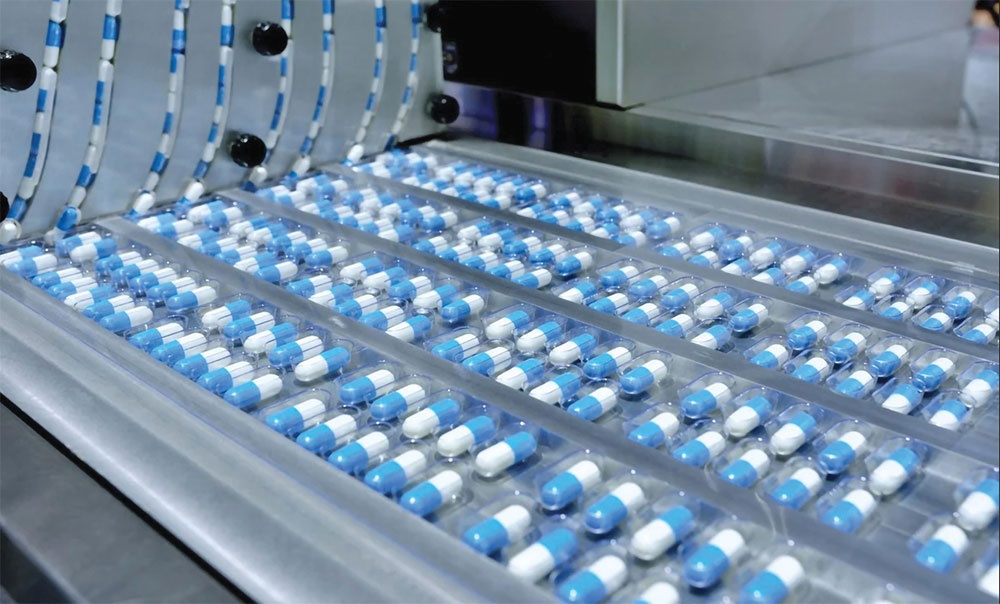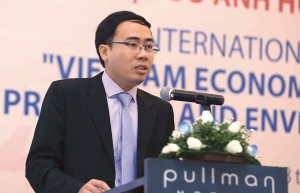The way out for pharma distribution
Opening the market to pharmaceutical distribution once again topped discussions among policymakers, experts, and businesses at a roundtable held by the Central Institute for Economic Management (CIEM) in Hanoi, especially as the Law on Pharmacy is being amended and submitted to the National Assembly for discussion at its 2024 session.
 |
| Opening up more distribution avenues is very much required in Vietnam’s pharma scene, photo Le Toan |
Nguyen Anh Duong, director of the Department of General Issues under the CIEM, said, “The country has been fully open to foreign warehousing and freight agency services for 10 years. The Law on Pharmacy 2016 was consistent with Vietnam’s international commitments. However, there are still some legal issues.”
He cited regulations on distribution and logistics stated in the Commercial Law and the Law on Pharmacy 2016 as an example. Specifically, distribution refers to “wholesaling, retailing, sake agencies, and franchising” in the Commercial Law. The definition of distribution in the Commercial Law excludes logistics services. This means that logistics services are considered as a separate category within the various sub-sectors of distribution activities.
Pharmaceutical distribution and logistics are also regulated in the Law on Pharmacy and related guidance documents. However, the concepts of distribution as stipulated in the implementing documents of the Law on Pharmacy are inconsistent with the concepts of distribution and logistics as defined in the Commercial Law.
In the Law on Pharmacy, drug distribution is not defined specifically, and foreign-invested enterprises (FIEs) are not restricted from providing drug and drug raw material preservation services. Moreover, the law does not regulate drug distribution as a pharmaceutical business activity;
According to pharma expert Dr. Le Xuan Ba, Vietnam’s distribution system is too complicated and ineffective, partly because the country has not opened up related pharma distribution and logistics.
“It needs to urgently study to clarify and unify the concepts in relevant laws, while eliminating unnecessary regulations that are hindering the development,” he said. “Vietnam needs to research and develop a roadmap to gradually open doors for FIEs in pharmaceutical distribution and logistics.”
According to Cuong Nguyen, lawyer at Novartis Vietnam, the goal of the pharmaceutical industry is to enable people to access high-quality drugs at reasonable prices. “It is necessary to encourage and open doors to foreign investment in the pharmaceutical industry,” Nguyen proposed. “It should have specific policies for the pharma industry to encourage more foreign investment and FIEs to transfer technology to bring about more value to the local pharma industry.”
According to experts, Vietnam has made commitments to fully open transportation services for pharmaceuticals, but not distribution services. These commitments have clearly distinguished between distribution services and transport services.
In particular, in commitments to the World Trade Organization (WTO), distribution services and transportation services are treated as separate entities. Vietnam recently committed to fully opening up its transportation service industry, which includes various services such as transportation, cargo handling, storage, and warehousing.
As part of the EU-Vietnam Free Trade Agreement (EVFTA), Vietnam has committed to opening up its distribution and transportation services industry, similar to the standards set by the WTO. The commitment to liberalise service trade in the EVFTA is the maximum restrictions, barriers, and conditions that Vietnam can apply to EU investors and service providers when accessing the Vietnamese market.
International experience shows that most ASEAN member states have liberalised pharmaceutical distribution services.
For example, the city-state of Singapore does not issue clear requirements for pharmaceutical vehicles or the necessary equipment for transportation, and the government is open to foreign investment in storage and warehouse facilities. This policy will likely pull in more foreign direct investment into the country, boosting economic growth and creating job opportunities.
In response to the recommendations being made, a representative from the Drug Administration of Vietnam under the Ministry of Health said, “The ministry is working on the amendments to the Law on Pharmacy to create additional enhancements for businesses. We will need a roadmap for such market opening to ensure success.”
 | Opening the domestic arena to pharma distribution Vietnam’s pharmaceutical market is one of the fastest growing markets in the world. However, although the market is growing rapidly, production capacity can only meet about half of domestic demand. |
What the stars mean:
★ Poor ★ ★ Promising ★★★ Good ★★★★ Very good ★★★★★ Exceptional
Themes: Healthcare Platform
- Opella and Long Chau join forces to enhance digestive and bone health
- Hanoi intensifies airport monitoring amid Nipah disease risks
- Cosmetics rules set for overhaul under draft decree
- Policy obstacles being addressed in drug licensing and renewal
- Sanofi, Long Chau Pharmacy relaunch medicine blister pack collection initiative
Related Contents
Latest News
More News
- A golden time to shine within ASEAN (February 19, 2026 | 20:22)
- Vietnam’s pivotal year for advancing sustainability (February 19, 2026 | 08:44)
- Strengthening the core role of industry and trade (February 19, 2026 | 08:35)
- Future orientations for healthcare improvements (February 19, 2026 | 08:29)
- Infrastructure orientations suitable for a new chapter (February 19, 2026 | 08:15)
- Innovation breakthroughs that can elevate the nation (February 19, 2026 | 08:08)
- ABB Robotics hosts SOMA Value Provider Conference in Vietnam (February 19, 2026 | 08:00)
- Entire financial sector steps firmly into a new spring (February 17, 2026 | 13:40)
- Digital security fundamental for better and faster decision-making (February 13, 2026 | 10:50)
- Aircraft makers urge out-the-box thinking (February 13, 2026 | 10:39)

 Tag:
Tag:













 Mobile Version
Mobile Version